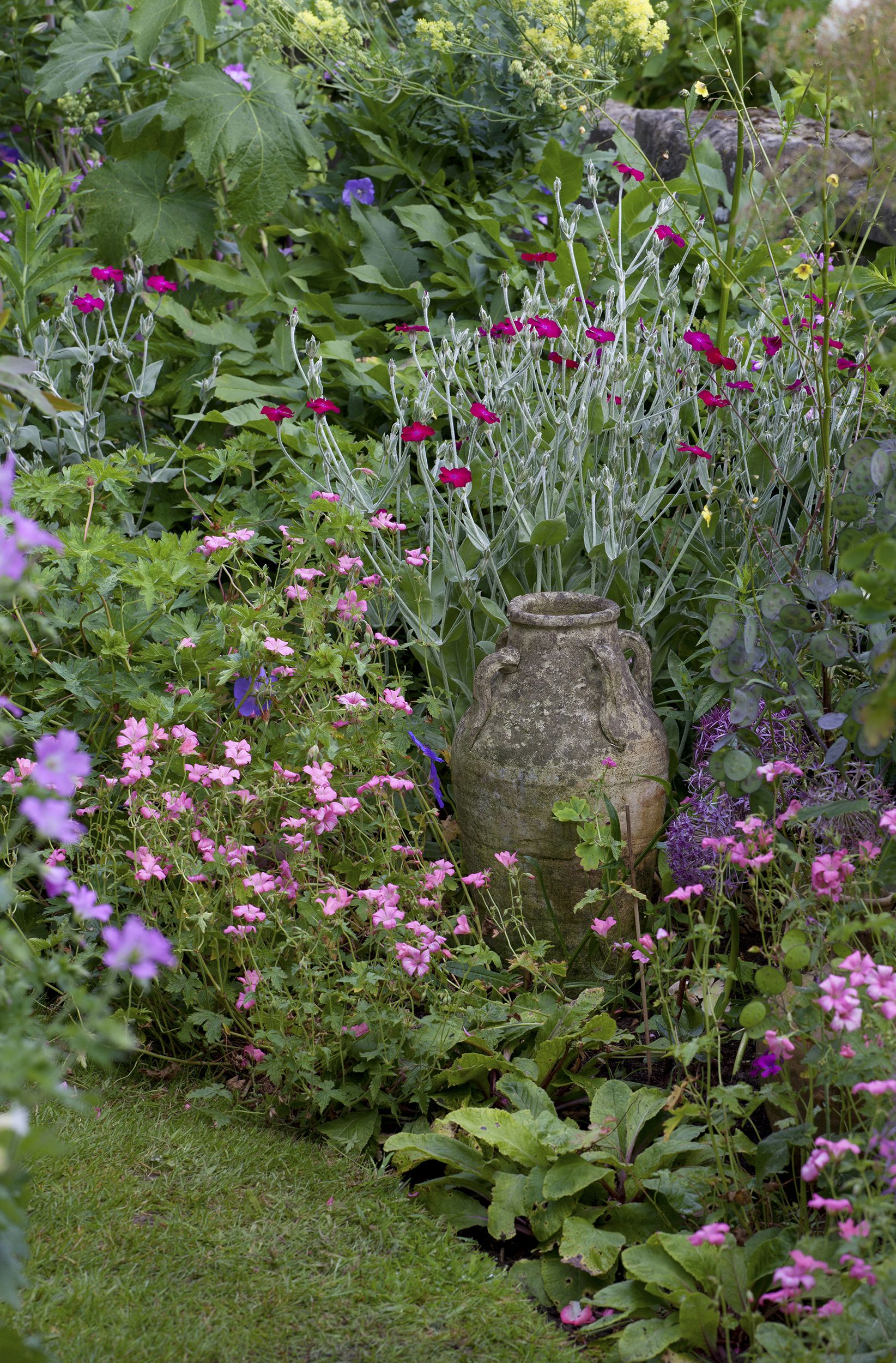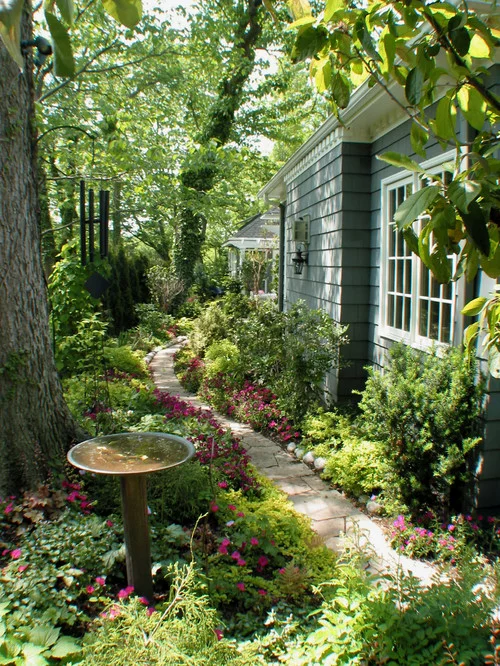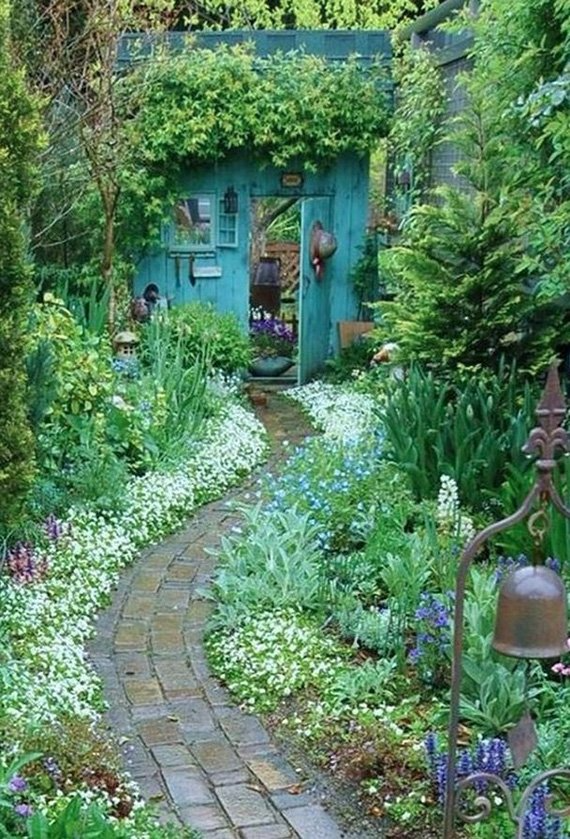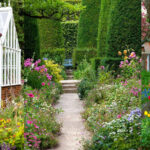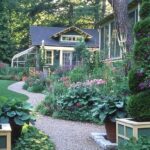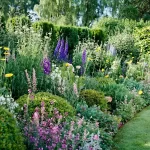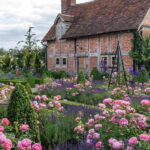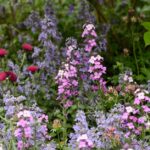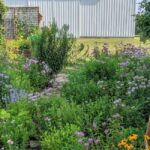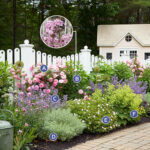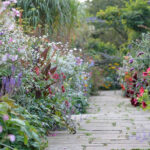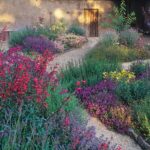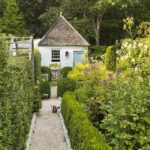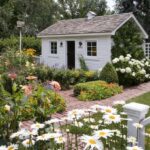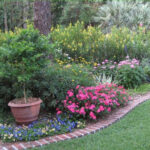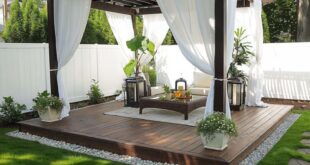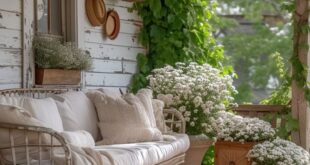Cottage gardens have a long history dating back to medieval times when they were originally created as a way for families to grow their own fruits, vegetables, and herbs. Over time, cottage gardens have evolved into beautiful and romantic spaces that are filled with an abundance of flowers, herbs, and other plants. These gardens are typically characterized by their informal design, overflowing borders, and a sense of lushness and abundance.
One of the key features of a cottage garden is the use of a wide variety of plants, often in a seemingly haphazard arrangement. This creates a sense of natural beauty and charm that is lacking in more formal garden designs. Flowers of all colors, shapes, and sizes are typically found in cottage gardens, with popular choices including roses, daisies, lavender, and delphiniums. Herbs such as mint, thyme, and sage are often scattered throughout the garden, adding both beauty and practicality.
Cottage gardens are also known for their use of traditional materials and structures. Rustic wooden fences, arbors, and trellises are common features in cottage gardens, providing support for climbing plants and adding to the overall charm of the space. Stone pathways wind their way through the garden, leading visitors on a meandering journey through the fragrant blooms and lush greenery.
One of the joys of a cottage garden is the opportunity for gardeners to experiment with different plant combinations and to let their creativity run wild. There are no strict rules or guidelines to follow when creating a cottage garden, allowing for a more personal and expressive approach to gardening. This freedom and flexibility make cottage gardens a popular choice for those who enjoy gardening as a creative outlet.
In addition to their aesthetic appeal, cottage gardens also offer a number of practical benefits. By planting a wide variety of flowers and herbs, cottage gardeners can attract beneficial insects and pollinators, creating a more biodiverse and resilient garden ecosystem. Cottage gardens are also relatively low-maintenance, as the informal design allows for a more relaxed approach to gardening. This makes them a great option for busy gardeners who want to enjoy the beauty of their garden without spending hours on maintenance.
Overall, cottage gardens are a delightful and charming addition to any landscape. With their informal design, abundance of flowers, and traditional materials, cottage gardens offer a whimsical and romantic retreat from the stresses of modern life. Whether you have a large backyard or a small balcony, creating a cottage garden can provide a peaceful and relaxing escape where you can connect with nature and enjoy the beauty of the outdoors.
